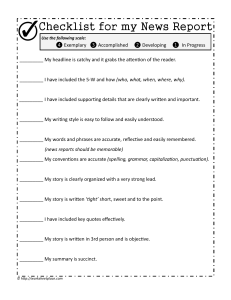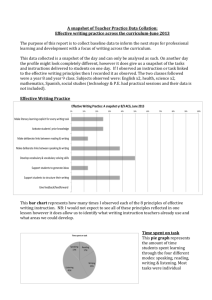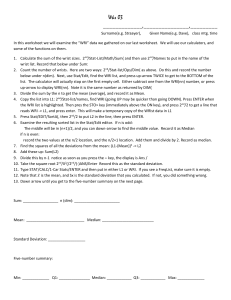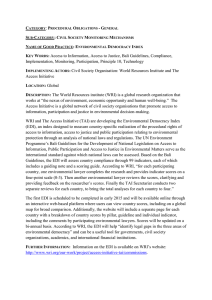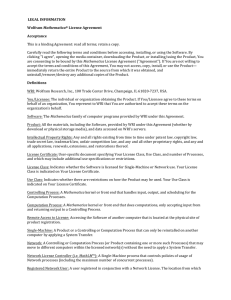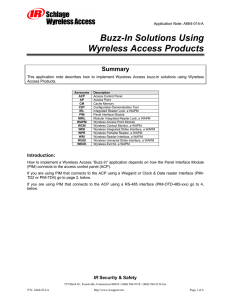A. BREACH OF CONTRACT/EXPRESSED TERMS
advertisement
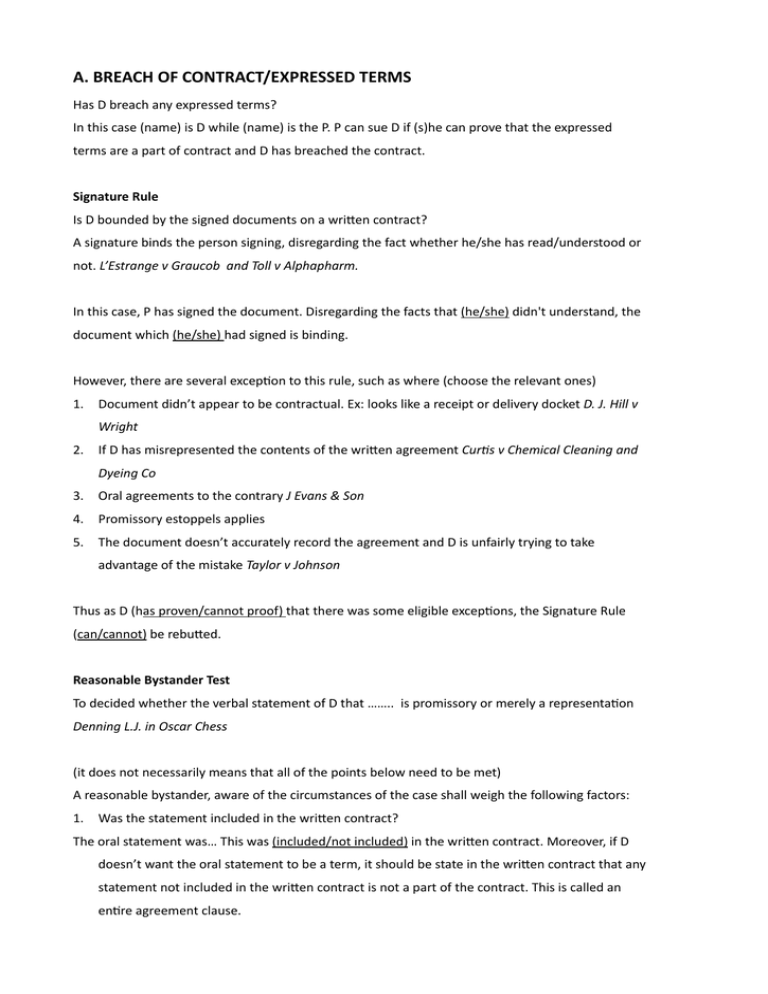
A. BREACH OF CONTRACT/EXPRESSED TERMS Has D breach any expressed terms? In this case (name) is D while (name) is the P. P can sue D if (s)he can prove that the expressed terms are a part of contract and D has breached the contract. Signature Rule Is D bounded by the signed documents on a wri@en contract? A signature binds the person signing, disregarding the fact whether he/she has read/understood or not. L’Estrange v Graucob and Toll v Alphapharm. In this case, P has signed the document. Disregarding the facts that (he/she) didn't understand, the document which (he/she) had signed is binding. However, there are several excepEon to this rule, such as where (choose the relevant ones) 1. Document didn’t appear to be contractual. Ex: looks like a receipt or delivery docket D. J. Hill v Wright 2. If D has misrepresented the contents of the wri@en agreement Cur@s v Chemical Cleaning and Dyeing Co 3. Oral agreements to the contrary J Evans & Son 4. Promissory estoppels applies 5. The document doesn’t accurately record the agreement and D is unfairly trying to take advantage of the mistake Taylor v Johnson Thus as D (has proven/cannot proof) that there was some eligible excepEons, the Signature Rule (can/cannot) be rebu@ed. Reasonable Bystander Test To decided whether the verbal statement of D that …….. is promissory or merely a representaEon Denning L.J. in Oscar Chess (it does not necessarily means that all of the points below need to be met) A reasonable bystander, aware of the circumstances of the case shall weigh the following factors: 1. Was the statement included in the wri@en contract? The oral statement was… This was (included/not included) in the wri@en contract. Moreover, if D doesn’t want the oral statement to be a term, it should be state in the wri@en contract that any statement not included in the wri@en contract is not a part of the contract. This is called an enEre agreement clause.
